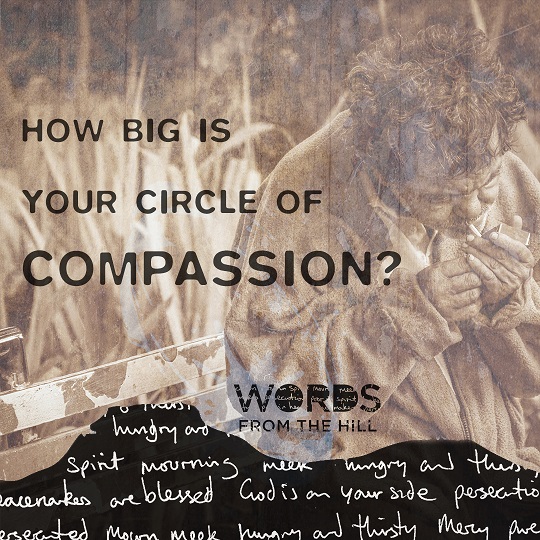If life is like a jigsaw puzzle, I know for sure I don’t have all the pieces. That’s why other people and their stories are so important. They are what is known in the Hebrew language as malach, which means “messenger” or “one who is sent.” We translate this as angels. Rabbi Lawrence Kushner says that these people rarely know that they are sent or that they even have a message for us. Unsuspecting and unaware, they go about their life doing their work, consumed with their plans and itineraries, unknowing of the fact that they are carrying a divine piece of your puzzle. How many times does it happen that we meet someone, maybe even unexpectedly, and we leave that place and think, Wow, I needed that!
People have given me a unique and perfectly shaped jigsaw piece that fits the puzzle of my life somehow and helps me get that little bit closer to being complete and whole. They have helped me hear and feel and figure out what it could look like for the Beatitudes to be a compass for my life.

As I sit here with you all on the hill pondering, I’m aware that we don’t have the man himself, Jesus, here in the flesh. We can’t hear for ourselves with our own ears the words coming out of his mouth. We can’t stop him and say, “What do you mean the meek inherit the earth? That’s ridiculous!”
What we have is the sacred text, this inaugural “state of the universe” address from Jesus. We also have our lives, our conversations, our questions, our experiences, the people and jigsaw pieces from the messengers around us. But it’s all so full of surplus meaning and open for interpretation—I mean, what does it actually mean for us? What does it mean for me?
What we want is answers. What we want is certainty.
Jesus doesn’t give us that.
What he offers us instead and constantly throughout the Beatitudes is presence, and—if we hear the invitation—an opportunity to be present.
“But Jesus, I’m too broken!” You’re blessed. God is with you.
“But I keep really messing up!” You’re blessed. God is on your side.
“But I have no clue what to do!” You’re blessed. God is with you.
“But no one is listening!” You’re blessed. God is on your side.
We are not invited to a life of certainty. We are invited to a life of curiousness with God beside us.
This is our adventure, to explore and find out what this could mean for us, what life could be like as we are compassionate toward ourselves, and as we extend our circle of compassion and mercy to those around us.
Maybe for you the initial work is internal. Maybe the Beatitudes are a doorway to shift your focus from what is on the outside to what is on the inside. From what is influencing you externally to what is influencing you internally. Maybe the Beatitudes help us see the difference between trying to change ourselves from the outside in and being changed by God from the inside out.

The Beatitudes give us a good framework for that kind of spiritual pursuit, where we empty ourselves of the desire for possessions, the need for pleasure, the obsession with power—and where we allow God to fill us and satisfy us with the things that really matter.
A number of theologians have said that the Beatitudes are the pinnacle and summary of all of Jesus’ teaching and what it means to follow him as a disciple. They provide a way or a path to follow that anyone can live at any time, in any circumstance, and in any culture.
For the early followers of Jesus, this was their anthem, their path, and their hope.
Stu G is the author of Words from the Hill and the lead guitarist of Delirious?. Continue reading here or watch The Beatitudes Project trailer that gives you a sneak peak of the book, film, and album. Get the book here.

